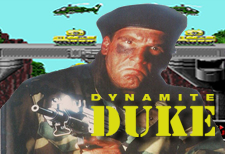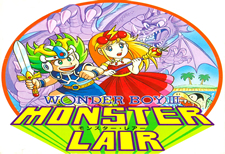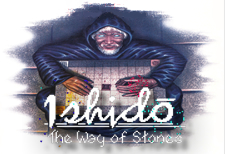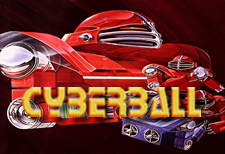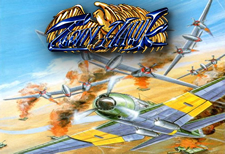There’s something to be said about straight-up shooters. I’m not talking about the “lone pilot vs. invading aliens” classics. No, I mean one guy with a BIG gun just squeezing the trigger until the vibrations stop! Dynamite Duke appears to be the game to fit the bill in this regard, until you actually play it. Aren’t explosions and big armament supposed to invoke some kind of a response? Shock and awe, meet your evil twin.
Tag: 1990
Wonder Boy III: Monster Lair
Sega seemed to have no worries keeping track of the continuity of the Wonder Boy series. As told in our complete retrospective, the games hop around from the original series to the Monster World line without much regard for keeping things clear. The first game to use the “monster” tag was a platformer that bore little resemblance to the action/RPG titles that would follow. Originally released in arcades, Monster Lair (bearing the title Wonder Boy III) came to the Genesis in a fashion that left much to be desired. As ports go – especially Westone ports – this one was especially disappointing.
Ishido: Way of the Stones
Sometimes, a puzzler just isn’t fun no matter how you slice it. The Genesis is pretty well taken care of in this regard, but some of the earlier entries in the genre don’t hold up. Ishido: Way of the Stones is one game that we just couldn’t get into, and we’ve got a full review to share about our experience. Read on and see if Accolade’s puzzler is one you should avoid.
Cyberball
During the first year or two after the Genesis launched, third party titles were few and far between, thanks to Nintendo’s iron-clad licensing agreements. During those dark years, Sega had to use all kinds of tactics just to get companies to even publish on its console. One of the most successful methods was the licensing and reprogramming of arcade hits by Sega itself. In addition to the great Capcom line up of reprogrammed games like Forgotten Worlds and Ghouls ‘N Ghosts, Sega also managed to snag some Atari titles, like the arcade hit Cyberball. Like its brethren, Cyberball received some home extras while retaining the look and feel of the coin-op as much as possible. The only problem with the futuristic football game is that it might not have been deep enough for the home market.
Twin Hawk
Toaplan’s been behind some great shmups, and a few of them were never released in the U.S. Twin Hawk was one of the rare games that got published by Sega in Europe and Japan, but never flew across the Atlantic. No one knows why, but we were deprived of a solid little shooter that employed some unconventional gameplay dynamics.

